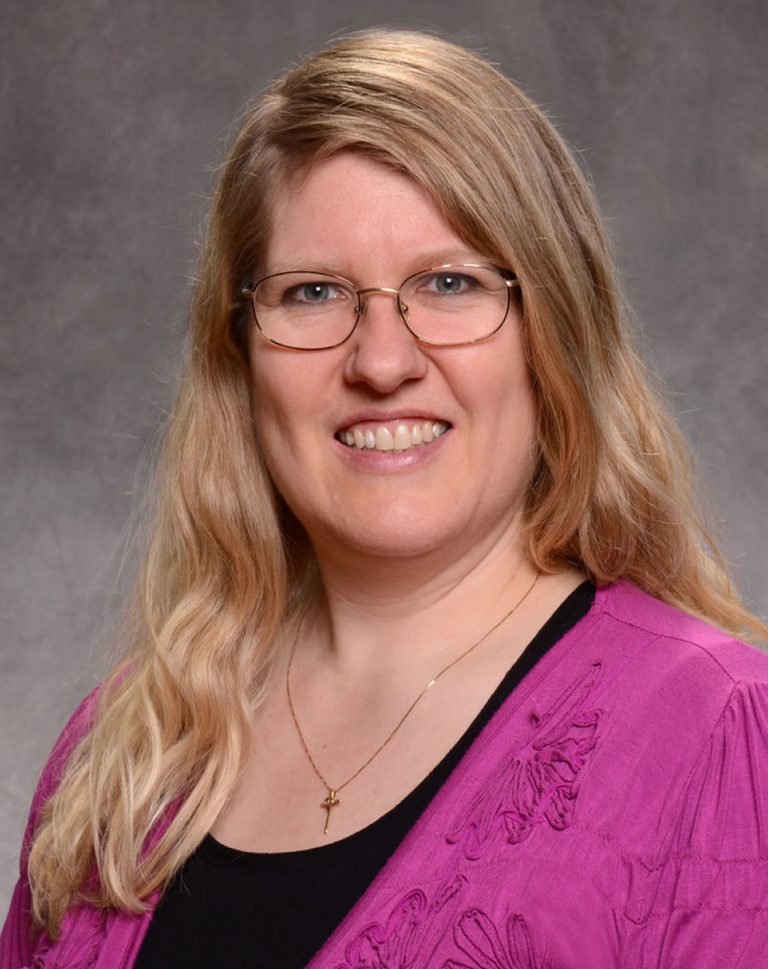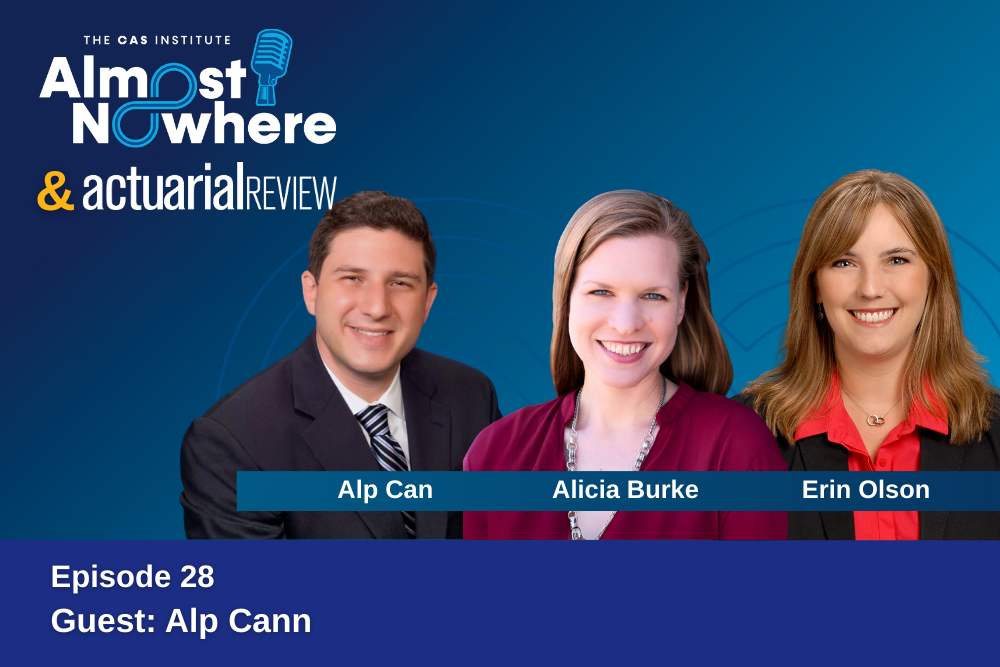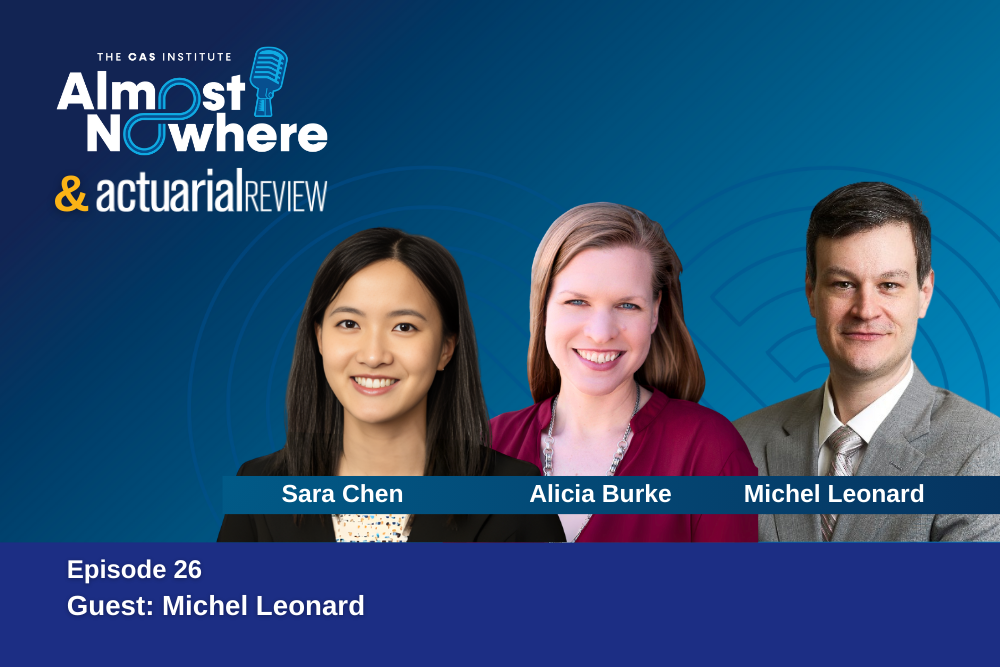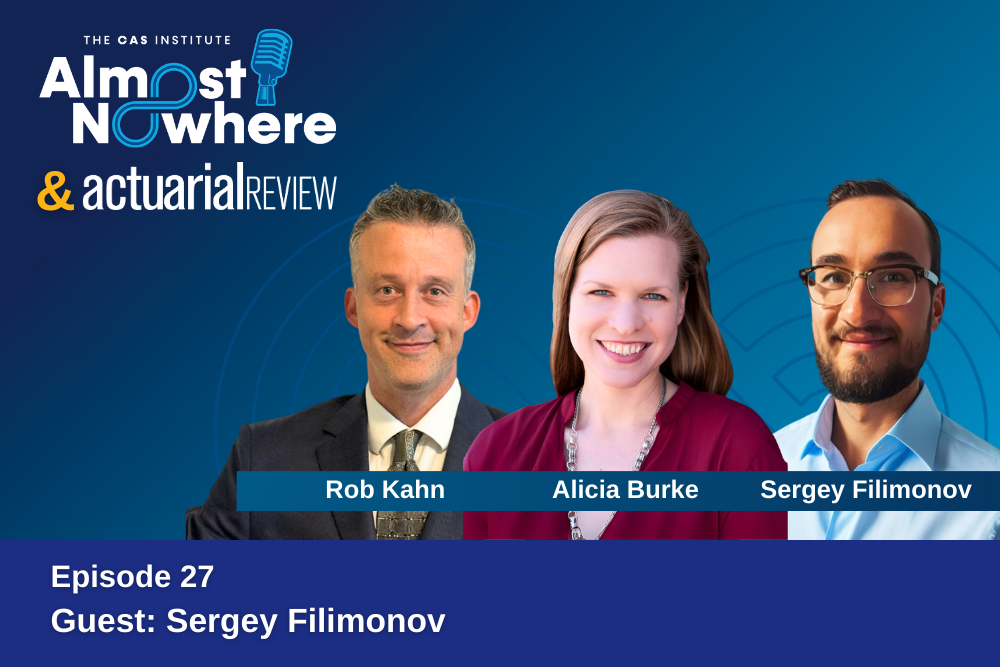
Our Meet the Veep column introduces our members and candidates to the CAS Vice Presidents who serve on the Executive Council. The EC is the governance arm of the CAS that oversees the operations of the organization, and consists of the president, president-elect, executive director and six vice presidents in charge of different functional areas. In this installment, we are pleased to introduce the new CAS Vice President-Admissions Jeanne Crowell, who begins her term in November 2017.
What is your role as the CAS Vice President-Admissions?
My role is to manage the process for admitting new members, including oversight of the examination process and the Syllabus and Examination Committee. I also oversee the Candidate Liaison Committee and ensure that the CAS has two-way communications with candidates. It’s important to get feedback from candidates and understand their experiences so we can improve upon the process. At the same time, it’s also important to get feedback from our employers to ensure that our credentialing process is meeting their needs, and I am looking forward to getting perspectives of the CAS Employers Advisory Council in that regard.
What volunteer work had you done for CAS that led to your appointment as VP?
I began my CAS volunteer work with the Syllabus Committee right after I got my Fellowship. At the time I thought I was acting as a rebel by not starting with the Exam Committee as was customary for new Fellows. I enjoyed helping to develop the syllabus and trying to improve the required readings that candidates used to learn the material. After a few years there, I volunteered for the Education Policy Committee and soon found myself serving as the chair. The Ed Policy Committee focused on things like analyzing travel time and evaluating requests for exam waivers based on exams from other actuarial associations around the world. I also got involved in a number of admissions-related task forces that looked into specific questions or issues that had arisen.
I served on some committees other than Admissions committees too, such as the Committee on Volunteer Resources, the CAS Trust Scholarship Committee and the University Relations Committee.
In 2010 I was elected to the CAS Board of Directors where I focused on providing strategic direction to the organization. This was a very rewarding experience because I learned about many other facets of our organization that I hadn’t been directly involved in before, and I was fortunate to be able to work alongside many talented leaders. These were exciting years as the CAS found itself unexpectedly facing a competitive environment for the first time.
Since my years on the board, I have served on the Nominating Committee and the Leadership Development Committee, both of which I have thoroughly enjoyed. Now I’ve come full-circle back to Admissions.

I spent my junior year studying abroad at Oxford University, where I was astonished to discover that the first-year students caught up with all of my mathematical studies in their first trimester.
What are your goals as VP-Admissions?
One of the main objectives is to ensure that we produce a syllabus that covers the right material to educate our future members. Another important objective is to deliver high-quality exams that allow candidates to show what they have learned and that appropriately distinguish between candidates who have met the minimum standards and those who haven’t.
To that end, the Admissions Committees are in the midst of several enhancements to our exams that I will support and oversee:
- First, we are in the process of incorporating integrative questions on our Fellowship exams. These larger questions allow candidates to synthesize their understanding of material across learning objectives in response to a scenario, thus more closely mirroring real-life actuarial work.
- Second, we are updating our exams that cover statistics and actuarial models, replacing the Exam 4 requirement and Exam S with two exams called Modern Actuarial Statistics I and II. These exams will be rolled out in 2018 and will better prepare our future members for future modeling work.
- Third, we are changing the way we administer written-answer exams by moving from a paper and pencil test to an Excel-based examination, which we are calling Technology-Based Examination. This will be administered first with Exam 5 next spring. I am very excited about this initiative because it opens up a wide range of opportunities in the future to create more real-world actuarial problems to be solved using Excel rather than a calculator. (See page 21 for more on CAS Technology-Based Examination.)
Could you share an interesting fact about yourself?
I grew up in Wisconsin and attended the University of Wisconsin, majoring in mathematics and eventually going on to get my master’s degree in actuarial science. I spent my junior year studying abroad at Oxford University, where I was astonished to discover that the first-year students caught up with all of my mathematical studies in their first trimester. I spent the rest of the year digging deeper into math topics alongside the first-year students. This was a challenging and invigorating year; I was immersed in a culture that I hadn’t realized is so much different from what I was familiar with. The friendships I developed with some of the English students continue today.
In my free time, I enjoy singing with my friends. I am a member of a local ladies’ barbershop chorus that sings a cappella music in four-part harmony. I also enjoy singing in a barbershop quartet, which allows more freedom for the four members to select and interpret music the way they desire. My first quartet, Synchronicity, won the international championship in 2004, and my most recent quartet, Moonstruck, won in 2014. If interested, you can find a YouTube video of Moonstruck if you search for “Moonstruck Loch Lomond.” (Crowell is the subject of a “Nonactuarial Pursuits” column in the August 2007 issue of Actuarial Review.)
When you meet new Associates/Fellows at the Spring and Annual Meetings, what information or advice do you try to impart to them?
I understand that the exams are a difficult and long process, but the career is worth it. Don’t give up.
Once you finish your exams, look for ways to get involved in the CAS. Your volunteer work can be highly rewarding, and the friendships you make are highly valuable. The Syllabus and Exam Committee is a great place to get started; you can meet other actuaries from around the country and the world and give back to the organization by helping to make the exams even better.













